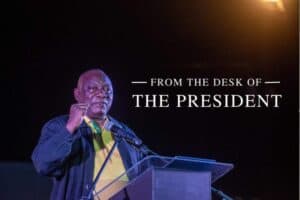Statistics showed that of 40% of South Africans living below the poverty line of a little over R600 a month, half were black.

Black people in South Africa continue to bear the brunt of racial indignity, as well as acute socioeconomic rights violations, more than two decades since the dawn of democracy, according to the SA Human Rights Commission (SAHRC).
As the nation gears up to observe Human Rights Day tomorrow, the SAHRC has painted a bleak picture of the state of human rights in the country and laments the increase in human rights violation complaints year-on-year.
Gail Smith, the commission’s spokesperson, yesterday said that racial discrimination or violations on the basis of race have been the highest reported cases.
“Most of our race-based discrimination complaints relate to hate speech. While the freedom of expression is one of our cornerstones of democracy, the vitriolic level of abuse and hate speech directed mainly against black African people in our society is a growing challenge,” she said.
Smith said there was a need to educate people and explain why it is dehumanising and denigrating to call another person a baboon or monkey, because these words were used in the past to degrade black people.
Based on this, there was strong case to argue in protecting black people from further attacks on their humanity.
Smith said race tied up with economic and social rights and that social and economic rights made up 75% of all complaints received in 2016/17.
Her sentiments were echoed by Yuri Ramkissoon, the SAHRC’s senior economic and social rights researcher, who said there were broad systemic challenges relating to race and racism.
She said not only did race create division in South Africa, but it also ensured that specific groups of people or individuals were systematically impoverished and disenfranchised.
“We can interrogate the link between race, poverty and inequality and the impact thereof. We can recognise the systems that entrench poverty for particular groups of people and apply programmes to dismantle these discriminatory systems, both in the short term and long term,” Ramkissoon said.
She said households that lacked basic services were often black and although there was acceptable healthcare and education for all, it was often black households in poverty-stricken areas most subjected to inferior services.
“We need to understand the link between racism and poverty is complex. It requires broad analysis. But it is safe to say that the majority of black Africans in this country live in highly unequal conditions,” Ramkissoon said.
Statistics showed that of 40% of South Africans living below the poverty line of a little over R600 a month, half were black. Ramkissoon said 49% of black women lived below the poverty line.
She said white-headed households earned roughly four times more than black-headed households.
For more news your way, download The Citizen’s app for iOS and Android.
Support Local Journalism
Add The Citizen as a Preferred Source on Google and follow us on Google News to see more of our trusted reporting in Google News and Top Stories.








